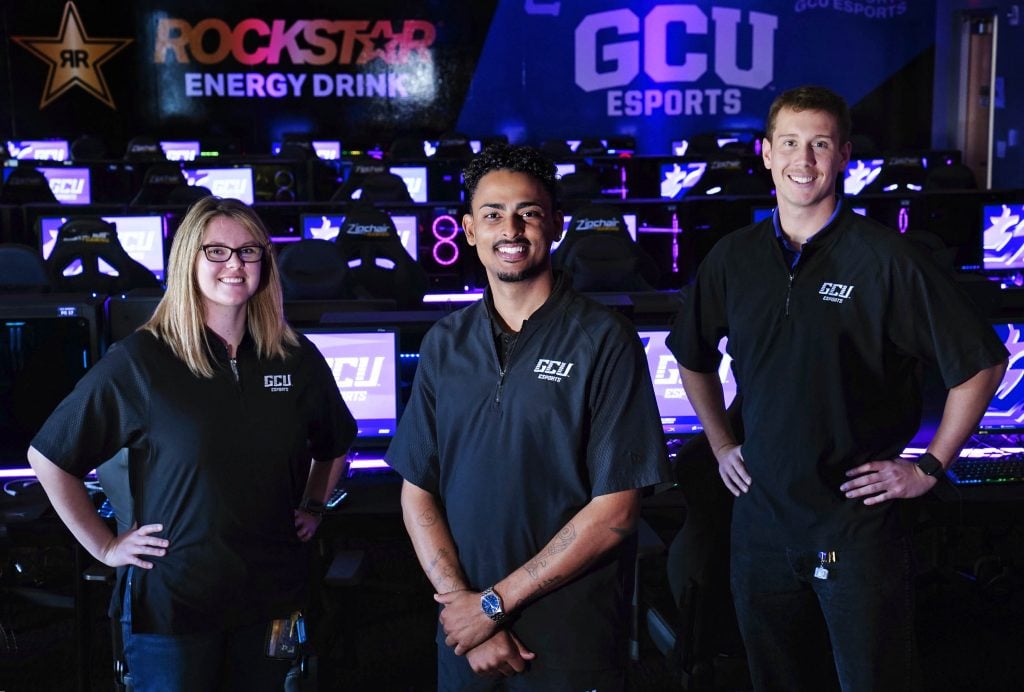
Photos by Ralph Freso
Arms folded above the head. Lean to the left, lean to the right and stretch out the sides.
Now, step into a lunge and stretch out the legs.
Tyler Galvin, Grand Canyon University Esports supervisor, led esports athletes in exercises and stretches at the International Esports Federation World Championship in Saudi Arabia in the fall.
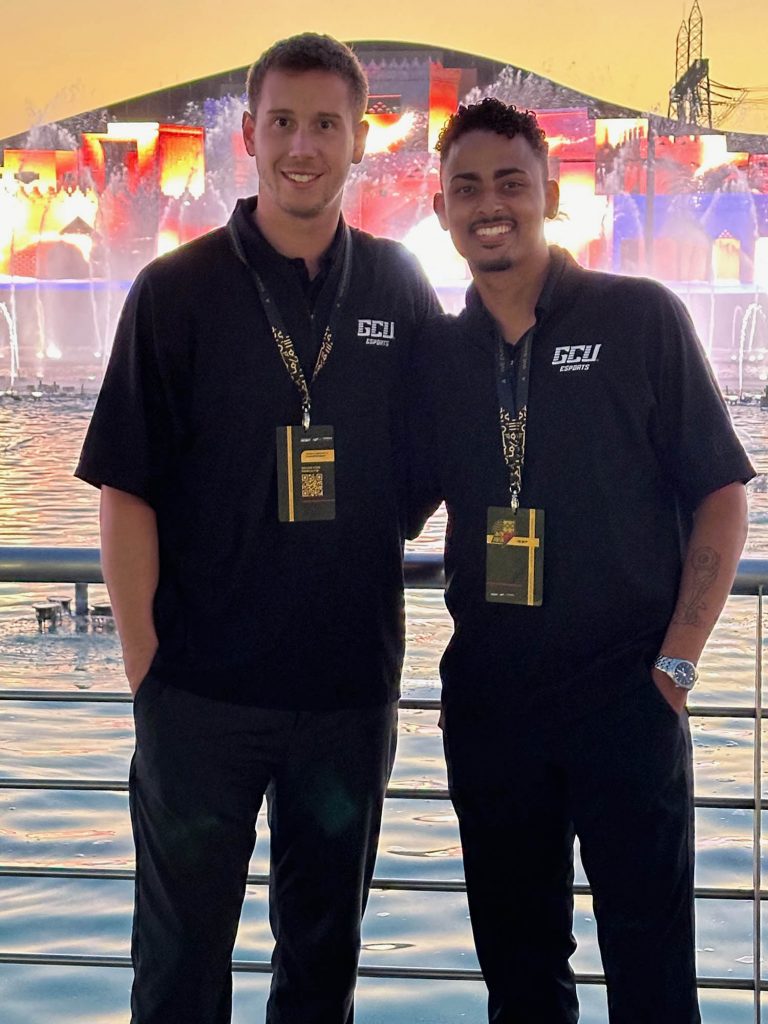
After partnering with FITGMR, a program and app that promotes wellness and health in esports, Galvin and GCU Esports director Jay DeShong spent eight days in Saudi Arabia educating the gaming community on the importance of maintaining a healthy lifestyle through exercise and a nutritious diet.
“Exercise is not ingrained in the esports culture,” DeShong said. “We wanted to teach players, coaches, delegates at the country level, why wellness matters and how it relates to performance.”
Known as a hub for esports, Saudi Arabia gave Galvin and DeShong the opportunity to spread their impact on a global scale and put GCU Esports on the map as a leading scholastic program.
“Most esports are clubs, and a lot of them want to become scholastic, but they don’t know how,” DeShong said. “They wanted to ask us questions like, ‘Is the club important? Is the community important? Should we be thinking about game design programs?’ We got to serve GCU and U.S. scholastic esports interest at that event.”
GCU Esports originally started out in what's now the campus candy shop, Sweet Disciple, in 2015 with just six computers and a small gaming community, but after crushing it in the Overwatch College Esports Championship hosted by ESPN in 2019, the program experienced a boom in student interest.
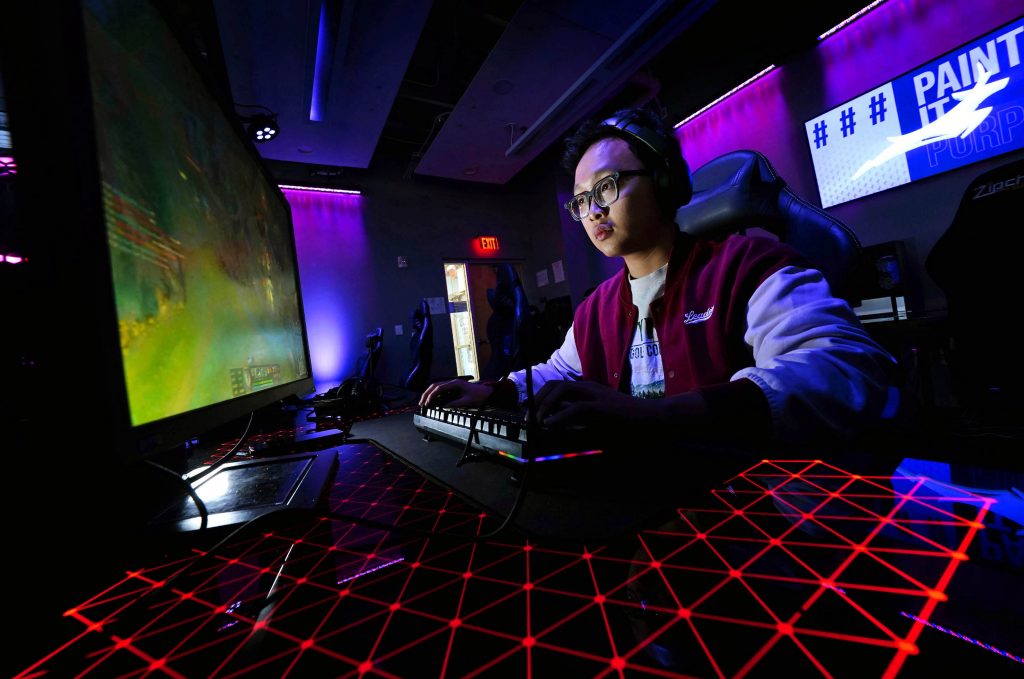
Esports relocated to the Technology Building and moved into its own arena, which touts more than 70 PCs, five PlayStations, five Xboxes and more than 30 Nintendo Switches, while its community grew to roughly 1,900 students.
“I think if you plug in one more phone charger, we might blow a fuse,” Galvin said. “We have maxed out our facility at this point.
“We really focus on recruiting students and bringing them in from high schools and other schools to come play at GCU, giving them as many opportunities to meet other gamers, do it for free, do it in a safe place and have fun together.”
Anyone can be a part of the community and visit the Esports Arena, but students also can compete through an application and try-outs process, which gives students a chance to participate in a competitive season organized like any other sport.
Students can play in an eight-week season against other universities for a chance to qualify for conferences, tournaments and even championships, such as May Madness.
"League of Legends," "Valorant," "Super Smash Bros." and "Fortnite" are just some of the games students can learn to play and master in roughly six different leagues throughout the year.
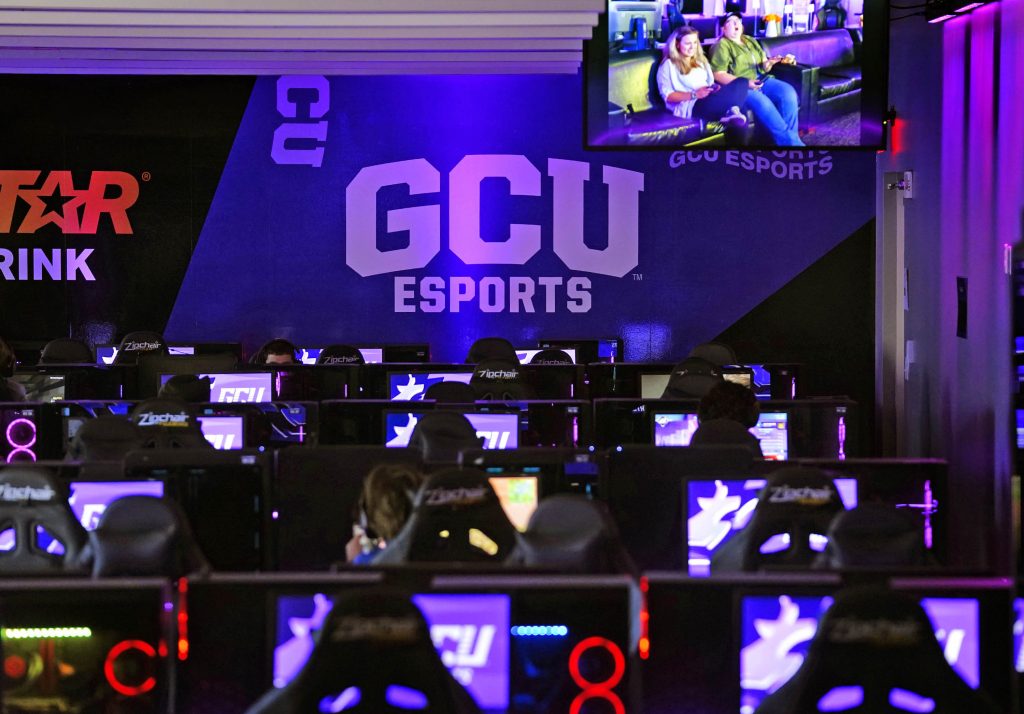
“It’s like the wild, wild West choosing where to participate,” Galvin said.
Junior Billie Staggs found her fit in the gaming community after applying for a student events manager position and getting involved in esports for the first time.
“I was just a casual gamer that played with my friends, but I didn’t know anything about esports,” Staggs said. “When I got here, I thought, ‘Competition is kind of cool.’ I like these teams and watching the pro leagues.
“One of my favorite parts about my position has been seeing the connections being made right in front of my face from something I did. It is such a close-knit community because we welcome everybody.”
Esports recently joined the College of Arts and Media as another creative program in the college where students can explore and develop their game design and production skills.
Students will have a chance to create video games, grow as subject matter experts for games and practice establishing quality assurance tests for efficient game-design flow.
In partnership with Summit Games, a small, independent game development company, GCU’s Esports hopes to provide more opportunities for students to gain game design experience and internship opportunities.
“Esports engages everybody on a college campus, not just the gamers,” DeShong said. “It’s a matter of finding people who like to do things like that, and for us, it is about providing those opportunities.”
Esports has opened its doors and become home to many students, including alumni.
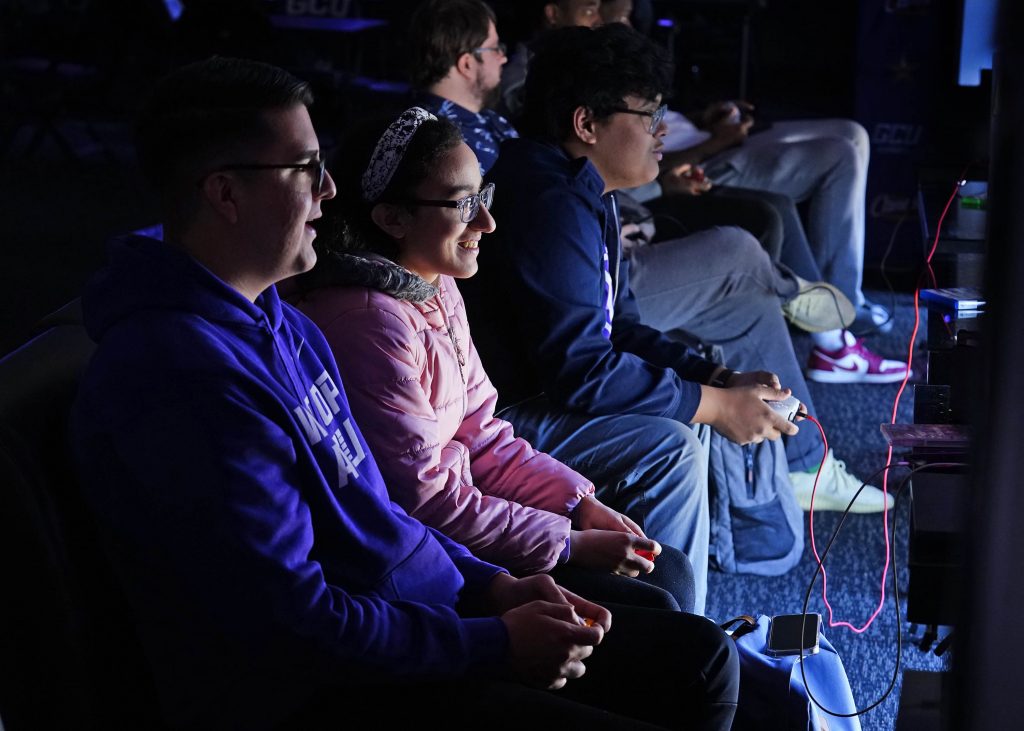
Alex Rowland, a digital design graduate, found the right platform to practice and develop her creative design skills in esports. Now as the esports production manager, she produces all content, social media, graphics and advertisement used by the program.
“Esports gave me the opportunity to grow as a manager and round out my overall production knowledge," Rowland said. "It gave me the opportunity to do traditional broadcast but with a whole different medium, using a different area of skill that I haven’t been able to use before.”
GCU staff writer Izabela Fogarasi can be reached at [email protected]
***
Related content:



































































